The State of Relevant Search and Where It’s Going
Here’s a hard truth: if your search solution isn’t turning around relevant results, it’s hurting you more than it’s helping you.
Delivering relevant search is a layered challenge that requires a combination of numerous tools and technologies. To cut through the noise, we surveyed search practitioners specifically about how they feel about their own ability to deliver relevant search, what they consider to be their biggest challenges and concerns to doing so, and what they envision for the future of the industry. Download our report and read on for some of our most important takeaways.
Search is not for the faint of heart
Our biggest question right out of the gate to search practitioners was about the importance of delivering search relevance for customer and employee searches. Practitioners made one thing very clear upfront: 100% of respondents ranked search relevance as highly important. More than half of the respondents then said that they considered delivering relevant search highly difficult.
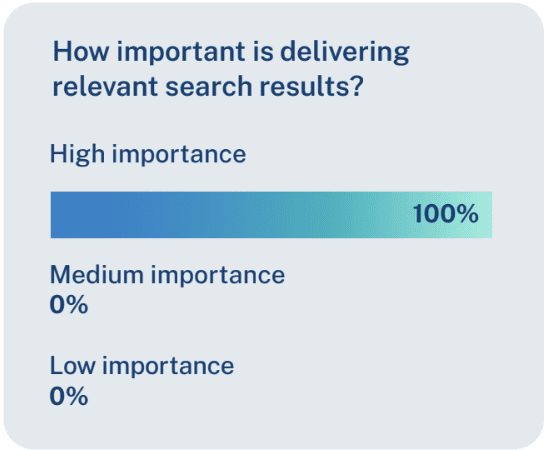
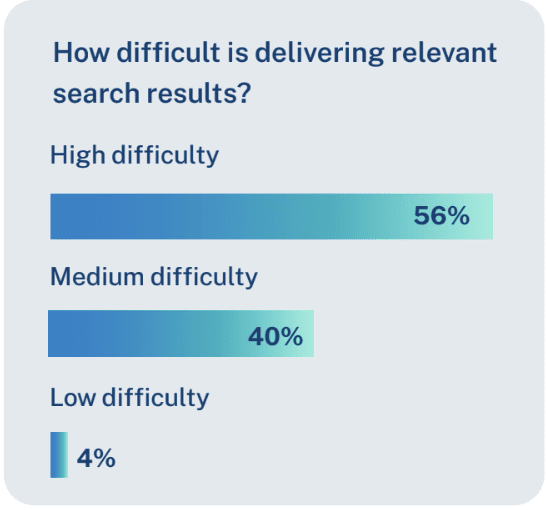
Search practitioners understand how critical search is, but struggle to find the resources and technology to enhance the search experience. We asked them about what they consider to be their biggest hurdle, and the answers were widely varied.
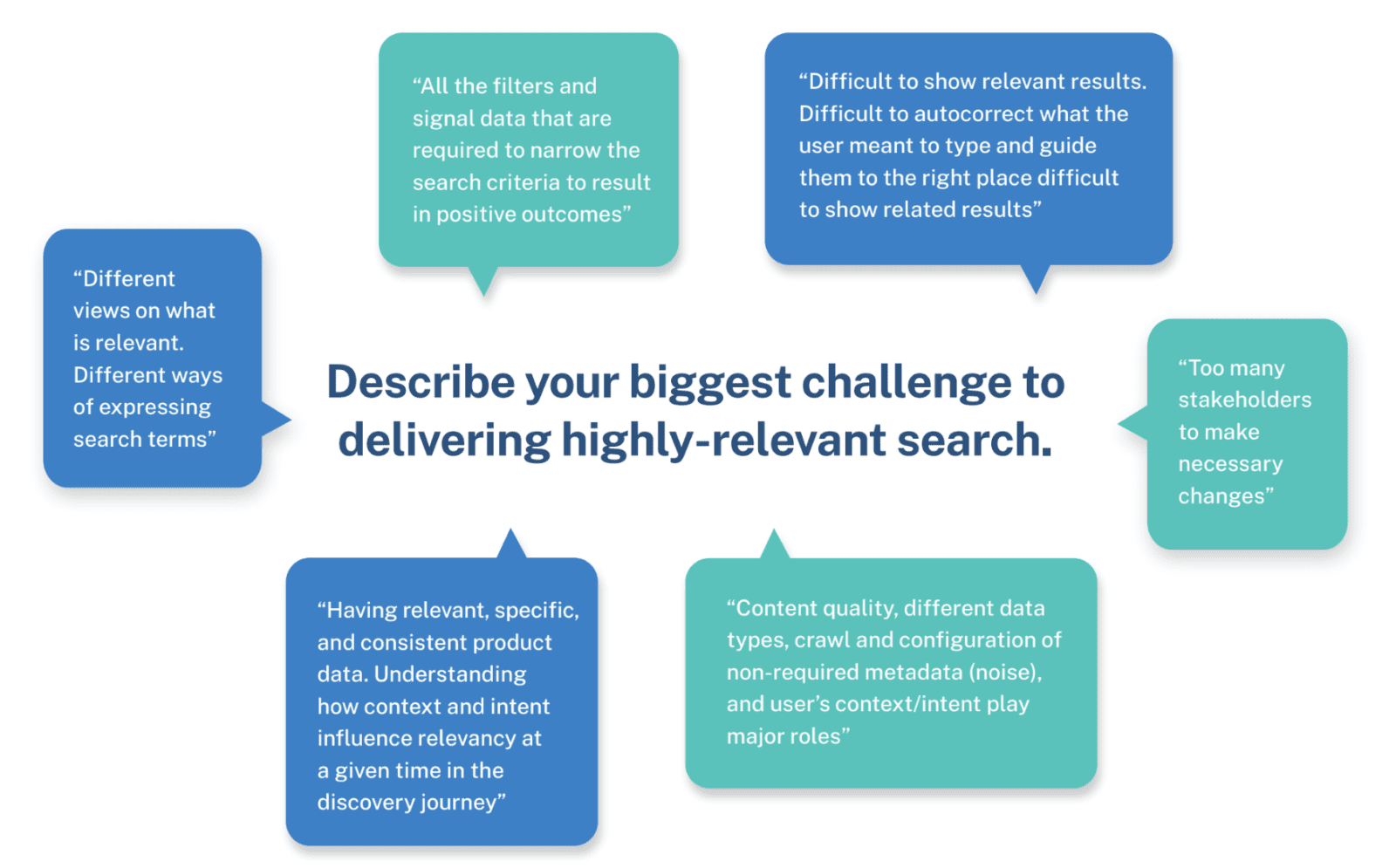
Search complexity is daunting
Respondents in our survey outlined, in order of importance, three options for delivering effective search:
- Collecting quality signal data about search relevance
- Analyzing search relevance-related data using analytics reports
- Taking correct actions (tuning, precisions, ranking) from search relevance related data
Collecting quality signal data about search relevance topping the list signifies the need for having the right – and accurate – data flowing into a search platform. Search practitioners understand that the basic ingredients of relevance are tied to having the right signal data, and being able to analyze and track those signals effectively makes the difference between a search strategy that is impactful vs. ineffective. Respondents were then asked to rank those options in order of difficulty to deliver. 37% ranked the most important (collecting quality signal data) as the most challenging.
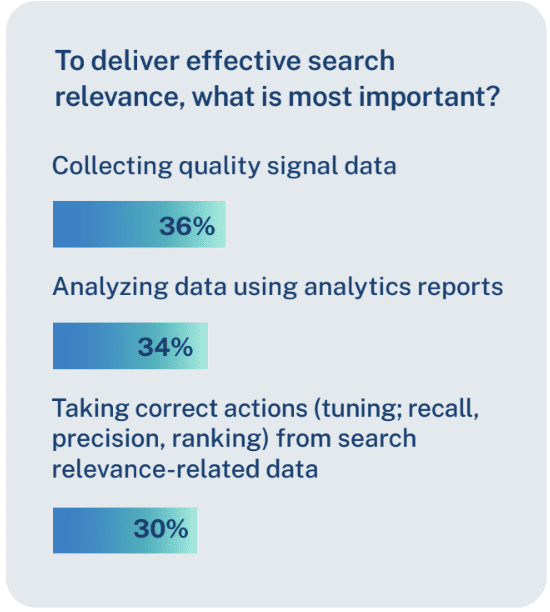
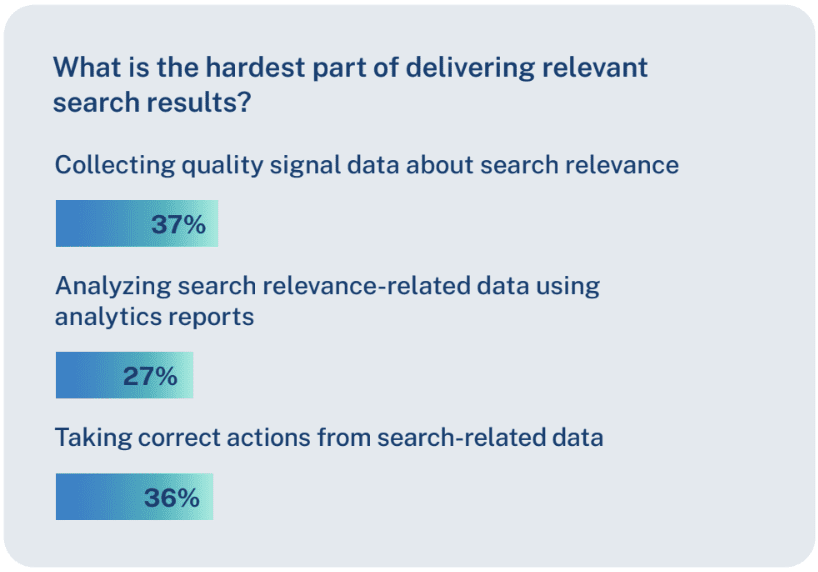
Taking the right action was also ranked as being difficult. This suggests that there is a burden to tuning models to take action confidently, and in attaining the precision needed for next-step recommendations to team members or vendors.
Looking to the future
All of that said, we asked out respondents to select one answer from three options regarding the importance of relevant search in the future.
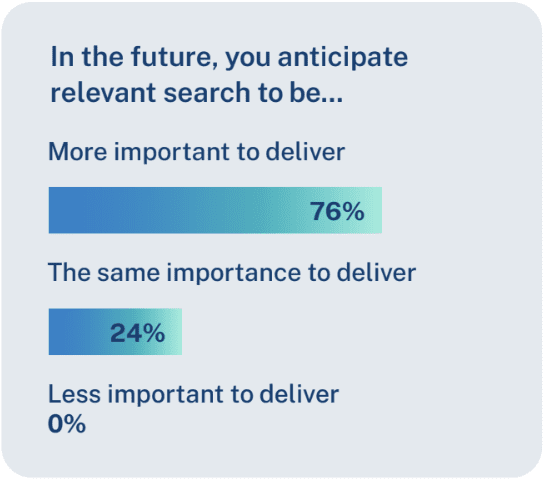
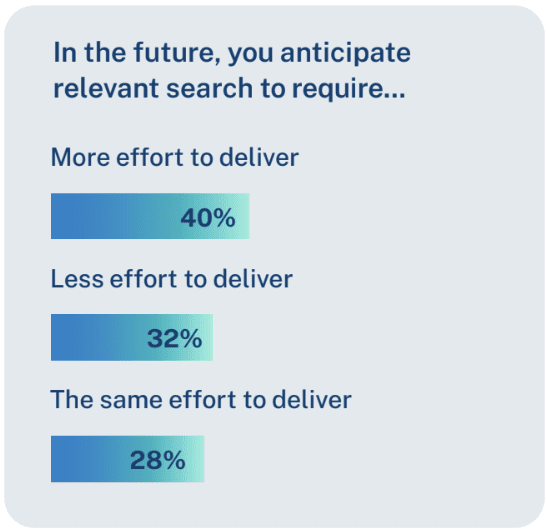
The complexity of understanding how to deliver relevant search and all that is needed to make it happen is not getting any easier in the future. Respondents’ views reflect that data collection, analysis, and acting on data will grow in complexity as search environments and signals grow. However, some feel the use of vendor partners, data connectors, pre-trained models, expert data scientists, and even A.I. will help deliver on the promise of simplicity in supporting search relevance.
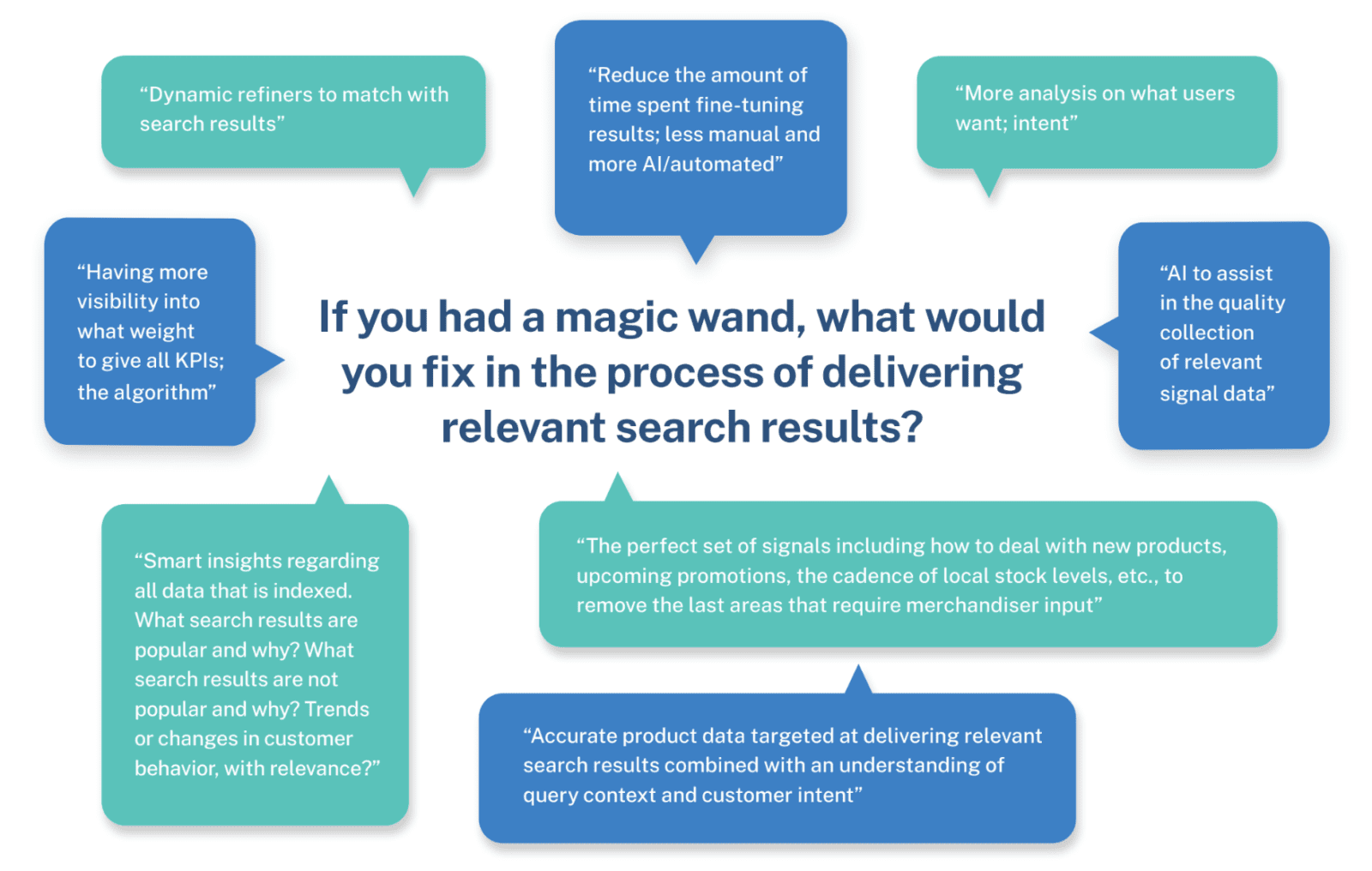
AI has a significant role to play in relevant search
Finally, the search practitioners who participated in our survey have strong feelings about artificial intelligence and its role in search moving forward. 88% of respondents feel it will be important in the future, and 52% said it will be extremely important to delivering relevant search results.
One of the key areas AI excels in search relevance is natural language processing (NLP). NLP is a branch of AI that deals with the interaction between computers and humans through language. AI algorithms are necessary for analyzing the structure and context of a user’s query to provide relevant results that match their intent. Though not capable of solving all search issues, search practitioners understand that harnessing what the technology does best (complex processes at scale) is a logical application to the large amounts of data sets and models needed to make search more relevant.
Interested in learning more about what is on the mind of search practitioners? Take a deeper dive by downloading our free report.
If you’re interested in how Lucidworks solutions can improve your organization’s search relevance, get in touch with us today.